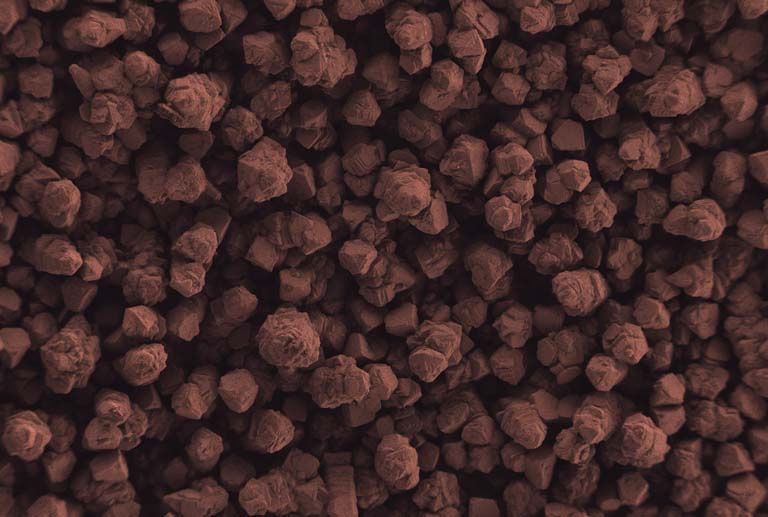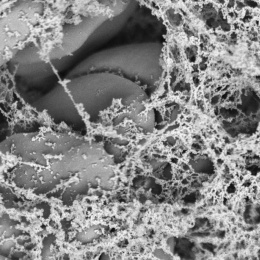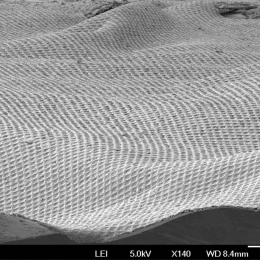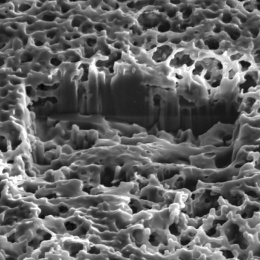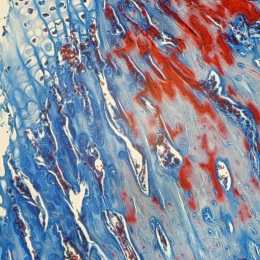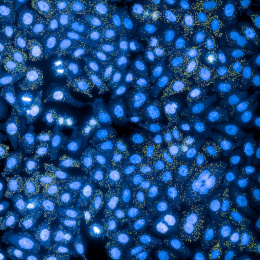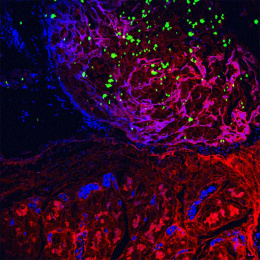Copper Seashells 1a
Copper Seashells 1a
Eric Lehnhardt, Will Records, Angela Belcher
Koch Institute at MIT
Inspired by nature’s ability to make seashells from proteins and chalk (calcium carbonate), the Belcher laboratory uses the tools of biological engineering to create structures like these from proteins and copper – not unlike a copper seashell. These copper structures can artificially do the work of photosynthesis: turning water, carbon dioxide, and energy into sugars and alcohols.
An open question about the artificial photosynthesis reaction is the effect of the reaction surface’s shape on which sugars and alcohols get made, and how quickly (that is, the effect of catalyst structure on product distribution and rate of production). We were using our biological tools of building metal fibers on top of genetically-modified proteins to create a range of structures, and took this picture to help us understand what kinds of structures we could achieve across the spectrum of our synthesis techniques.
